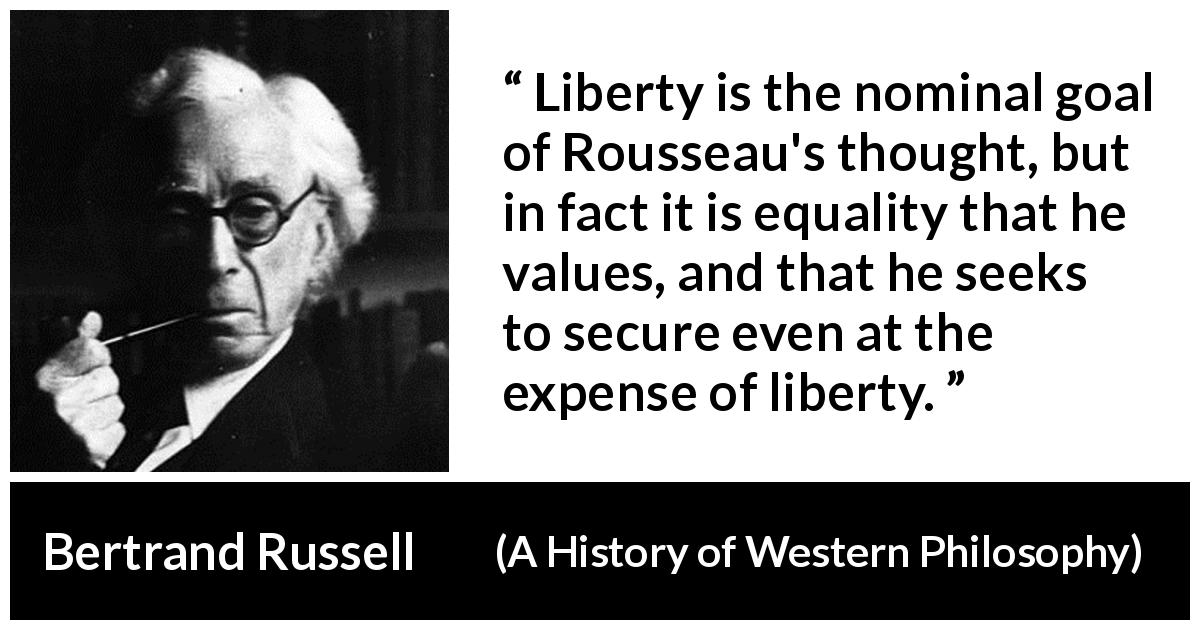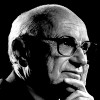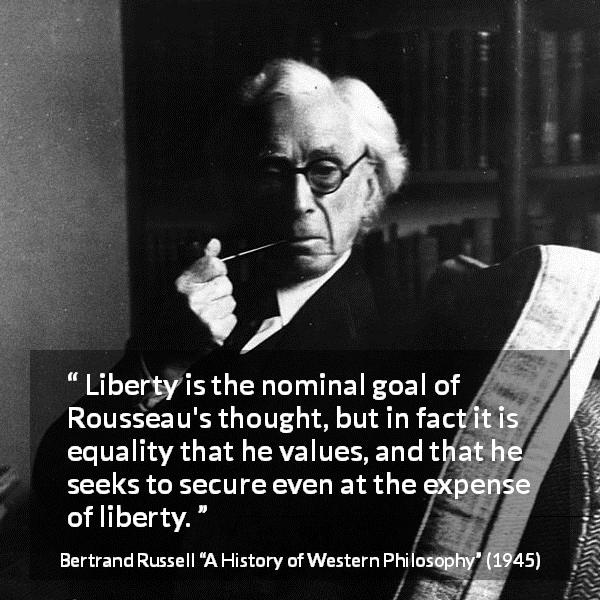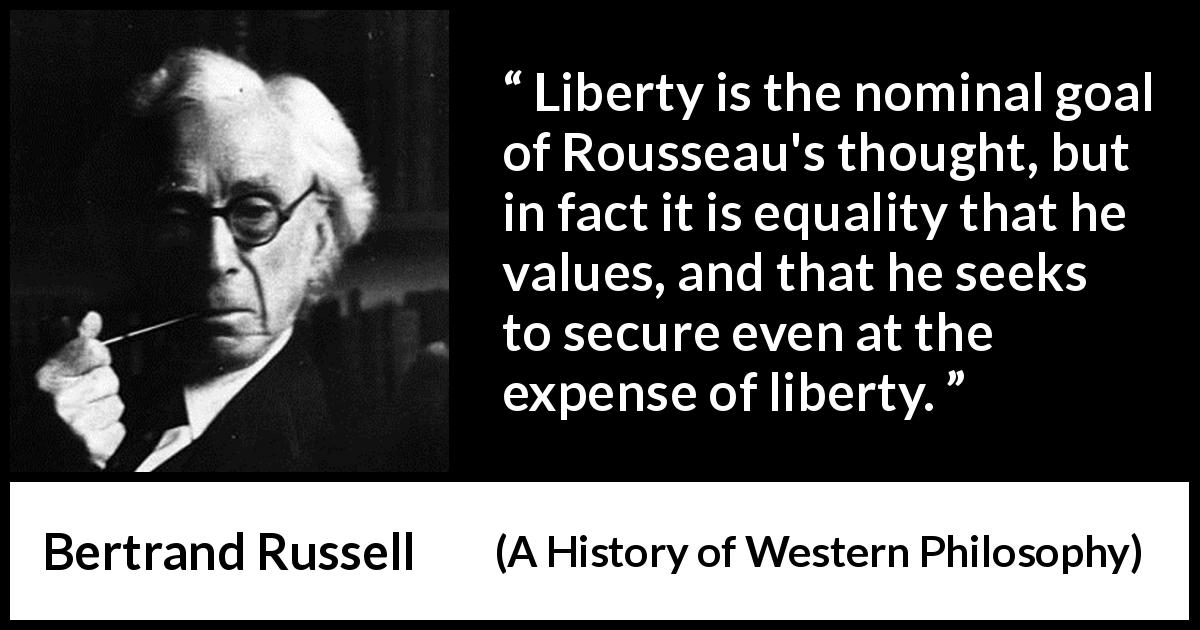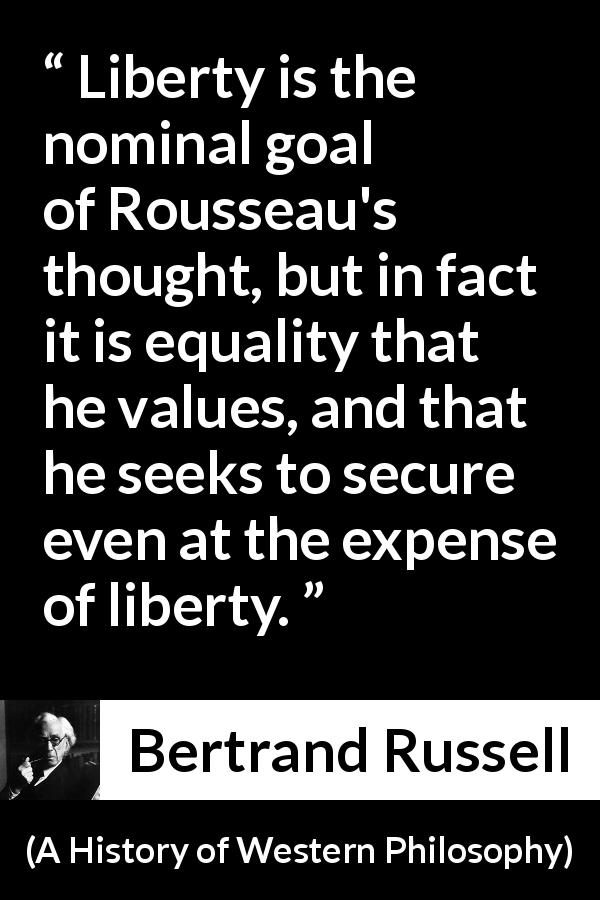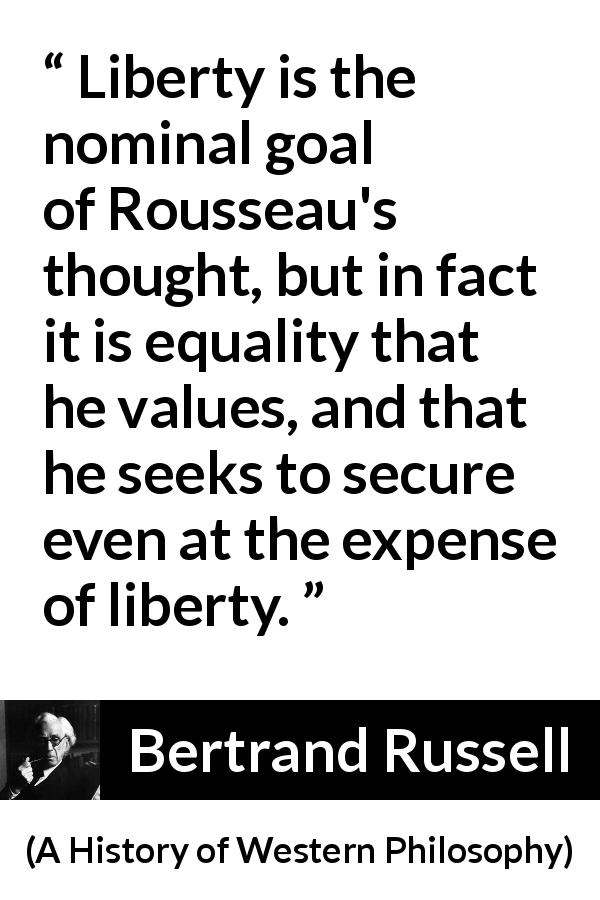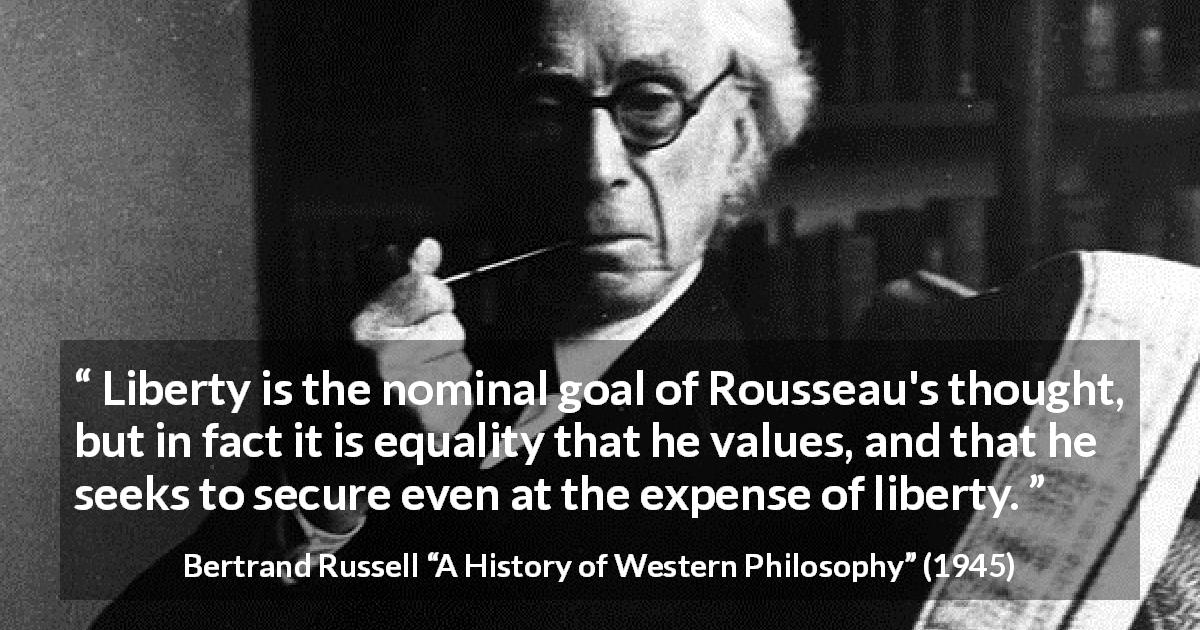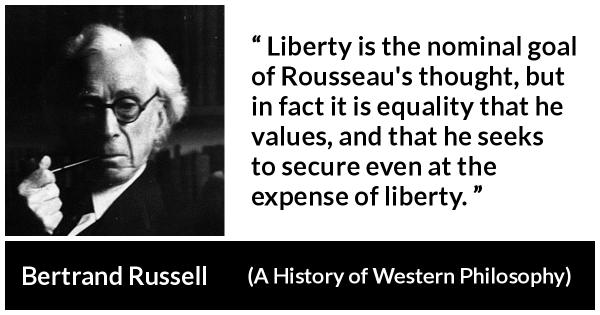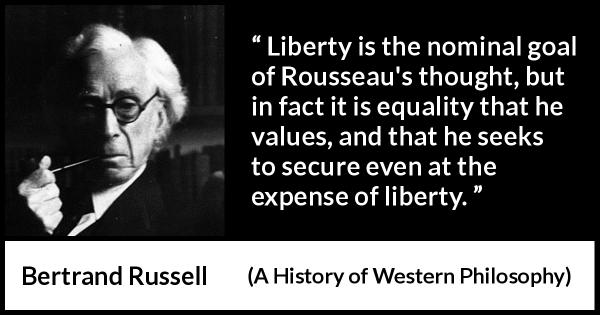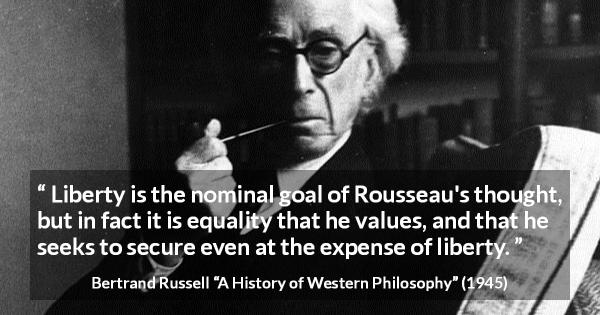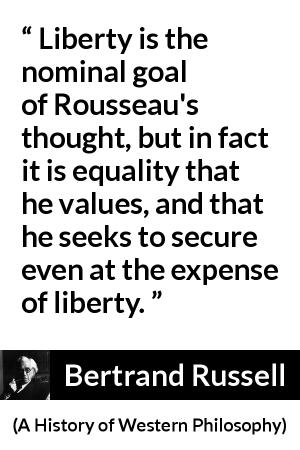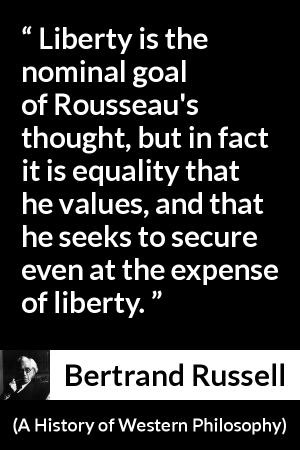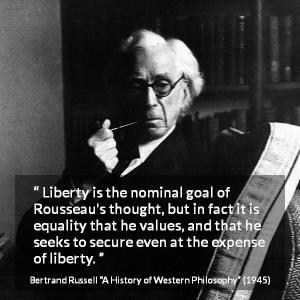“ Liberty is the nominal goal of Rousseau's thought, but in fact it is equality that he values, and that he seeks to secure even at the expense of liberty. ”
Bertrand Russell, A History of Western Philosophy (1945). copy citation
| Author | Bertrand Russell |
|---|---|
| Source | A History of Western Philosophy |
| Topic | equality liberty |
| Date | 1945 |
| Language | English |
| Reference | |
| Note | |
| Weblink | http://www.ntslibrary.com/PDF%20Books/History%20of%20Western%20Philosoph... |
Context
“Although the book as a whole is much less rhetorical than most of Rousseau's writing, the first chapter opens with a very forceful piece of rhetoric: «Man is born free, and everywhere he is in chains. One man thinks himself the master of others, but remains more of a slave than they are.» Liberty is the nominal goal of Rousseau's thought, but in fact it is equality that he values, and that he seeks to secure even at the expense of liberty.
His conception of the Social Contract seems, at first, analogous to Locke's, but soon shows itself more akin to that of Hobbes. In the development from the state of nature, there comes a time when individuals can no longer maintain themselves in primitive independence; it then becomes necessary to self-preservation that they should unite to form a society.” source
His conception of the Social Contract seems, at first, analogous to Locke's, but soon shows itself more akin to that of Hobbes. In the development from the state of nature, there comes a time when individuals can no longer maintain themselves in primitive independence; it then becomes necessary to self-preservation that they should unite to form a society.” source
